Heavy rainfall in May triggered unprecedented flash flooding and mudslides in Afghanistan’s northern and western regions. The remote communities swept away by the floods have contributed the least to the climate crisis, yet they are bearing the brunt of the devastating impact, with their lives and livelihoods hanging in the balance.
The scale of the disaster is immense, with significant loss of life and widespread destruction across several provinces, including Badakhshan, Baghlan, Takhar, Faryab, Ghor, Herat, Badghis, and Farah.
According to the national authorities, nearly 350 people have been confirmed dead, with a further 1,651 injured. Some 8,000 homes have been destroyed, and over 60,000 acres of agricultural land have been swamped. Critical civilian infrastructure – such as roads, bridges, schools, hospitals, water points, and electricity supplies – has also been damaged, cutting off villages and hindering the delivery of humanitarian aid to flood-affected communities.
‘Nobody saw it coming.’
Nurullah, a father of 5 and survivor of the floods, was out on his farm with his 2 sons when the disaster first hit their village.
“No one expected the floods. We have not seen this scale before,” Nurullah says. “The intense, moving water took away our cash, clothes, bedding and food. We were left with nothing.”
Luckily, no one in Nurullah’s family was killed, but their home was flattened, and the floods swept away their livelihood. Like hundreds of others, Nurullah now lives in a tent he received from a humanitarian organisation.
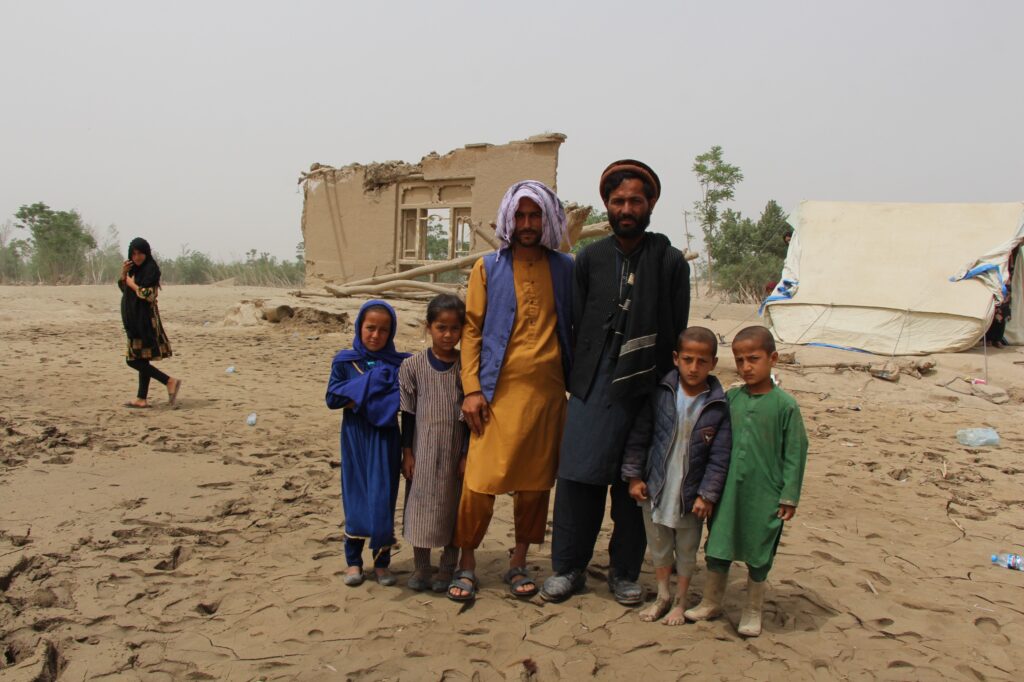
Our response
Islamic Relief has been on the ground since the onset of the flooding in March, assessing the needs of the affected people so we could provide targeted assistance to affected families in Balkh, Nangarhar, Baghlan and Takhar.
When the flooding intensified, with flash floods from hefty seasonal rains tearing through mud villages from May 10, we launched emergency operations within 24 hours in Baghlan, the worst affected province.
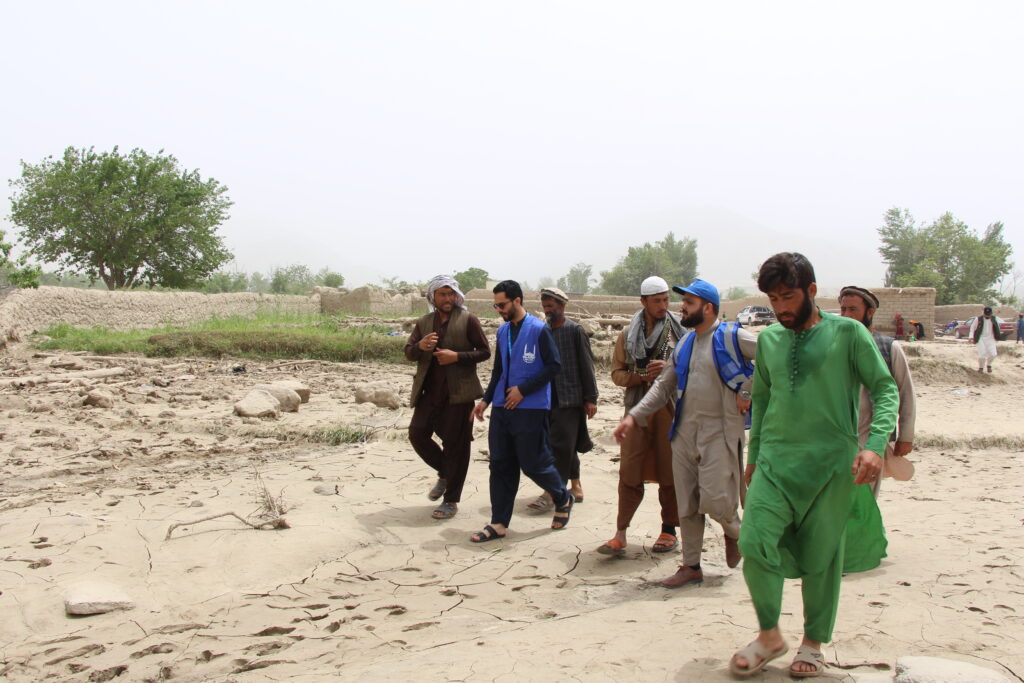
Multi-purpose Cash Assistance (MPCA) is one of Islamic Relief’s most effective and dignified emergency response initiatives globally. Compared to supplying aid items to families, cash assistance gives affected people greater flexibility and choice in meeting their own diverse needs, such as food, shelter, and healthcare.
Here, 3 survivors share how MPCA will help support their recovery from this disaster.
‘I will use the cash to buy construction materials’
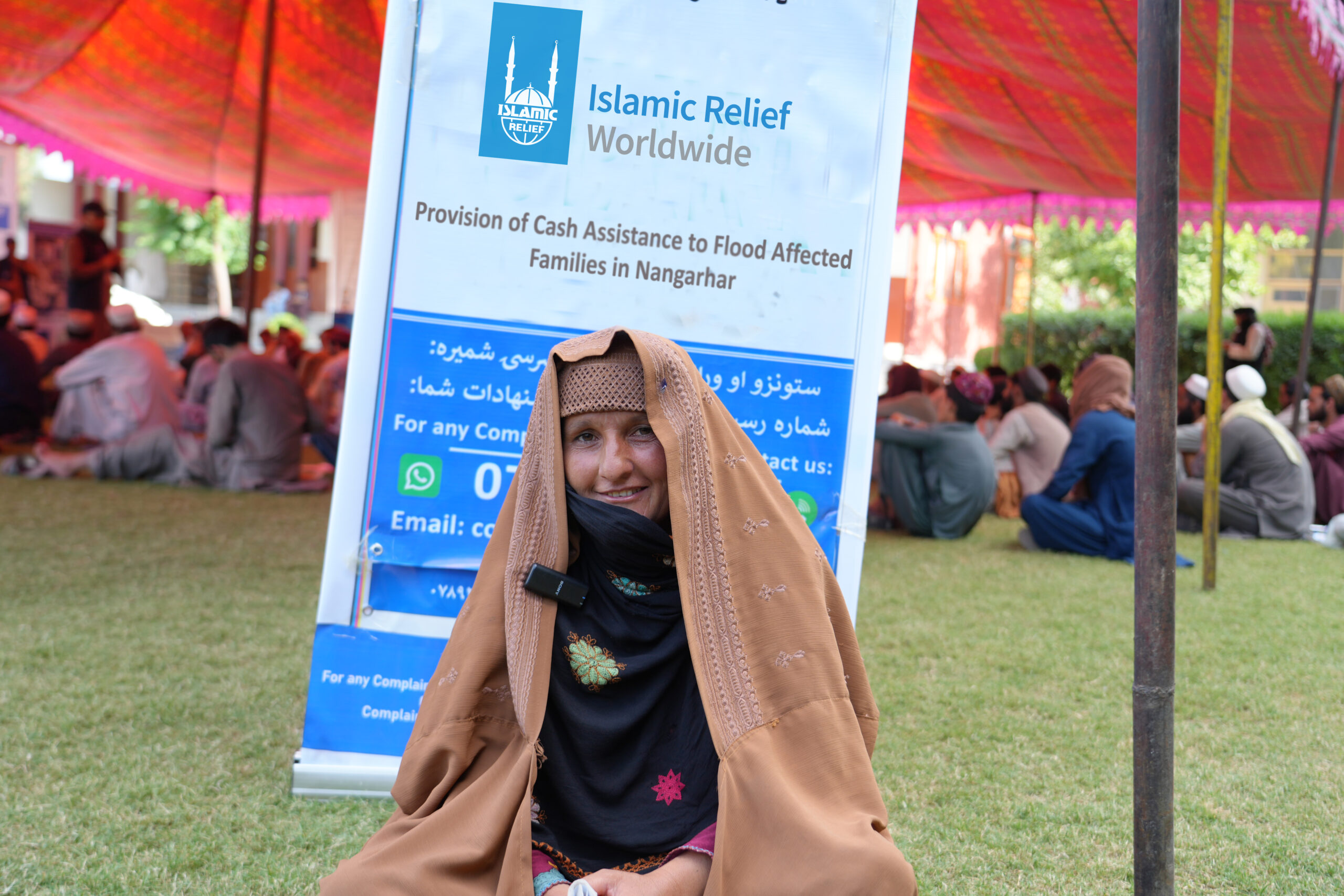
“Floods are common in my area.But this season, it came with a lot of force,” explains Lul-Maryam, a widowed mother of 6 displaced by the floods in Behsud district, Nangarhar province.
“I lived in a one-room mud-brick home and owned a few sheep. My house is damaged, and only 3 of my sheep survived.
“I’ll use the cash assistance to purchase construction materials for my damaged home. Thank you for coming to our aid.”
‘The cash means a roof over my children’s heads’
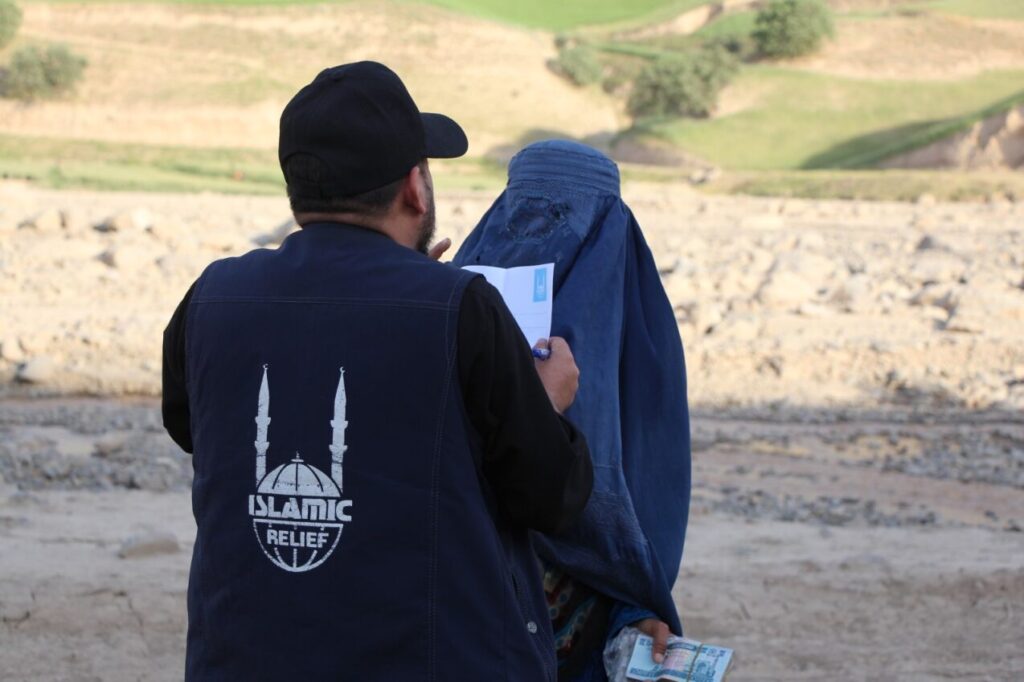
“I have never seen such a devastating flood in my entire life,” says Khurma Gul, a widow with 8 children who lives in the Farkhar district of Takhar province.
“The floods swept away everything I owned, including my home, kitchen, and latrine. However, I managed to save my children. Some families lost their family members.”
“I have received 10,000 Afghanis (approx. £110) today from Islamic Relief. I will use this money to build a roof for my 8 children. I’m so thankful for your help.”
‘Your assistance will help me restart my life again’
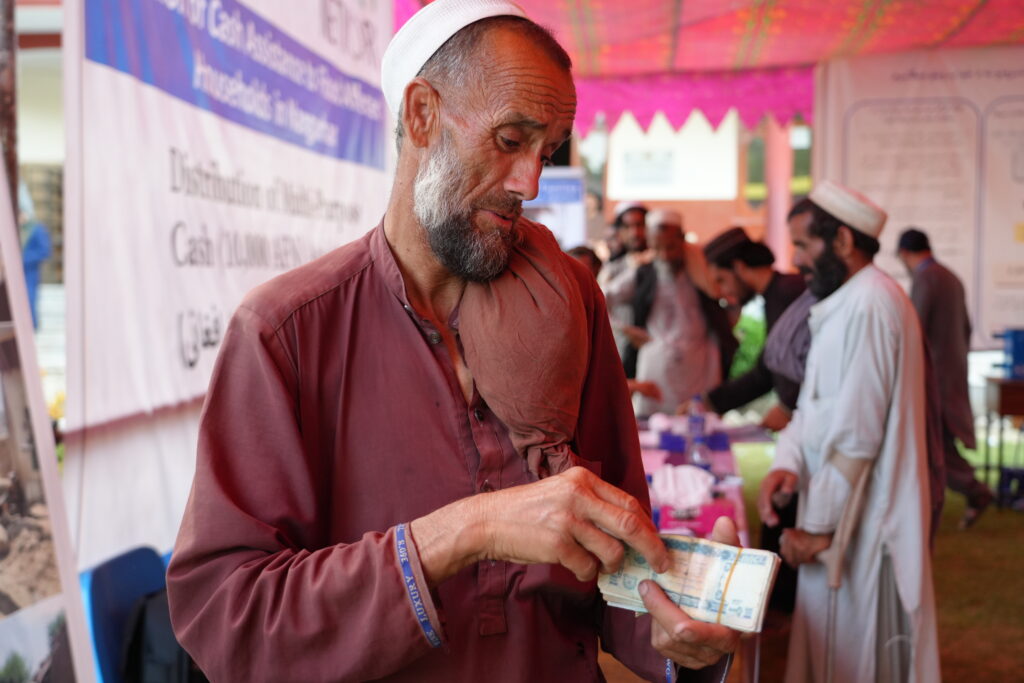
“As a farmer, I prayed for rain. It came, but it was too much. It was raining for 3 hours non-stop,” Hamidullah remembers.
The 62-year-old shared a 2-bedroom mud home with 8 family members – 3 daughters, 4 sons, and his wife. The floods washed away his house and field, forcing him to set up a makeshift shelter from tree branches on higher ground, not far from where his original house stood. Hamidullah and his family now live on donations from well-wishers and humanitarian organisations.
“I felt like a big weight had been lifted off my shoulders when I received the money. I’ll rebuild my house with the money. I don’t know how to thank you. May Allah bless your work.”
Islamic Relief has embraced cash assistance as a first-line emergency response for communities impacted by the crisis, as it is a highly cost-effective method of delivering humanitarian aid. This approach has put us in a position to consistently be among the first to respond to emergencies in Afghanistan. However, affected communities also need long-term solutions to the climate crisis.
In the first phase of response, our emergency teams have so far reached 661 flood-affected families with MPCA in 3 hardest-hit provinces: Baghlan, Takhar, and Nangarhar. These families include members who have lost their homes and belongings, as well as other vulnerable people, including those with disabilities and families of orphaned children.
Please help us to continue this vital work. Support our life-saving work in Afghanistan by donating today.
*Name changed to protect confidentiality










